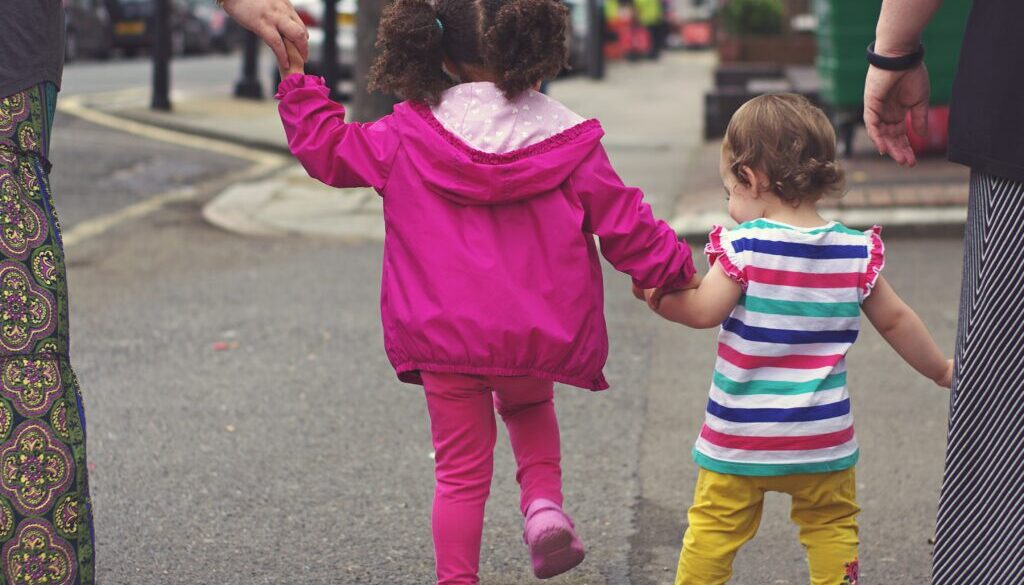Instilling Kindness In Our Kids
By Aparna Mele
“Kindness is a language which the deaf can hear and the blind can see.” — Mark Twain

How do children learn to care, feel connected to their communities, and know their impact in the world?
Developing compassion in children is akin to developing muscle strength. The more you use your muscles, the stronger they get. Our children learn compassion through many life experiences by default. But those who also participate in programs that teach kindness, respect, empathy, and compassion and with families that reinforce those strengths at home develop the muscles they need to become civically-engaged adolescents and adults. Scouts, church groups, and teen service programs provide excellent ways for children to learn skills and practice compassion in their communities and there are many local national and global hands-on service projects that reinforce these values. Children practice compassion through INVOLVEMENT and community programs help inspire and mobilize children to use their energy, creativity, and compassion to perform small acts that make huge differences.
“Three things in human life are important: the first is to be kind; the second is to be kind; and the third is to be kind.” ― Henry James
Regarded as one of the greatest human virtues, compassion is an empathetic response and attitude toward others, enabling us to connect to human suffering with care and understanding, acting in ways that brings comfort to those around us and allows us to be charitable. Research shows that devoting resources to others, rather than having more and more for yourself, brings about lasting well-being. Kindness has many benefits including increased happiness and a healthy heart. It slows down the aging process and improves relationships and connections, which indirectly boosts your health. Kindness broadens your own frame of reference and is a symbol of respect to value others, and correlates with enhanced mental, emotional and physical well-being.
Compassion plays a key role in helping children develop into engaged, caring, and optimistic adults. Compassion cannot be learned by talking about it and must be practiced at every opportunity, whether it involves a difficult encounter that helps kids put themselves in another’s shoes or by giving without the need to gain anything in return. The best way to reinforce compassion is to help our kids find ways to experience the internal reward of feeling appreciated. It can also happen by teach children to self-regulate their emotions, ie the ability to stop or delay an action rather than behaving impulsively. Children should understand that a compassionate attitude is a form of internal strength, helping them to understand the power of their calmness and patience. Sometimes it also means helping children take a strong stand without retaliatory anger.
“Do your little bit of good where you are; it’s those little bits of good put together that overwhelm the world.” — Desmond Tutu
Teach kids to open their eyes and notice when someone needs a helping hand or is suffering. A kind word, a smile, opening a door, or helping carry a heavy load can all be acts of kindness. Celebrating someone you love, giving honest compliments, sending a thank you note, telling someone how s/he is special to you, helping an elderly neighbor with yard work or food, taking a photo of someone and sending it to the person, sharing homemade food, refusing to gossip, donating old clothing and things you don’t need, and full-heartedly celebrating someone else’s successes are all effective at cultivating compassion. Kindness also includes being kind to yourself, and teaching children self-love and self-appreciation is vital.
Inspiring a spirit of service and kindness in our kids develop their compassionate muscles – muscles they will use over and over again for the rest of their lives. Make sure they get lots of practice any chance they get! Reinforcing this skill and value will benefit them for their lives, giving them personal satisfaction and life fulfillment, and strengthening their relationships with those in their life. Compassion leads to tolerance for other’s viewpoints and a spirit of unity. Especially during these challenging times, the world can never get too much compassion!
“My religion is very simple. My religion is kindness.” ― Dalai Lama XIV



